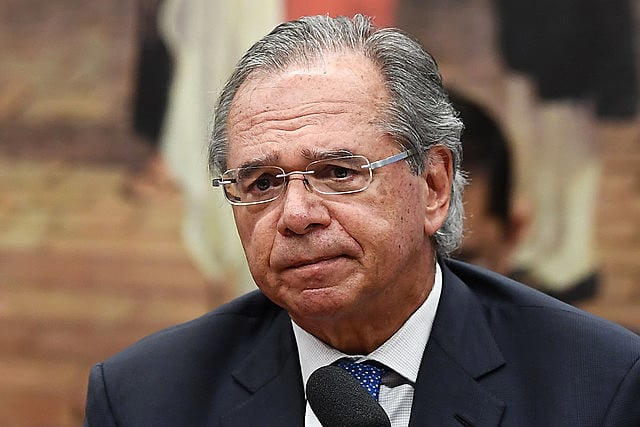The latest Focus report, a market readout released by Brazil’s Central Bank with more than one hundred private financial institutions, once again cut the country’s 2019 Gross Domestic Product (GDP) growth forecast, for the 13th time in a row.
This Monday’s readout showed a 1.23-percent growth forecast, down from 1.24 percent in the latest report, released on May 17. In January, the estimate was at 2.6 percent.
Even liberal economists are now talking about a possible stagnation (near zero-percent growth) or even a depression, that is, a downturn in economic activities compared to 2018.
The Jair Bolsonaro administration, especially his economic team led by the Economy minister, Paulo Guedes, argues that the pension overhaul must be passed to unlock investments and stimulate economic growth again, repeating the same narrative that was used to pass the labor reform and the spending cap that limited social expenditure.
Economists linked to developmentalist thinking, however, argue that, despite what the government says, the implementation of the liberal program of the Economy minister could worsen economic problems.
Paulo Kliass, a doctor of economics, argues that, unlike what Guedes claims, it’s not by reducing labor or pension taxes for businesses — on the supply side — that the country’s economy will regain momentum. Private investments, he says, happen when there is expectation that there will be a demand for products and services.
“None of what they promised is being delivered. The economy is not picking up, the GDP is not growing, consumption is not happening. A recovery can only be possible — and I’m not even talking about development, just growth — when businesses are sure the demand will continue over time,” Kliass says.
And people need income in order to buy products, Guilherme Mello says, a professor of economics at the University of Campinas. While it may seem like a trivial statement, the Bolsonaro administration is actually doing the opposite, including with their proposed pension reform bill.
“To reinvigorate the economy, you have to reinvigorate income — wages and jobs or social benefits. Unemployment and underemployment are increasingly common, the average pay is not growing, and, to make matters worse, the financial benefits will be reduced with the pension reform, there is no continuing, long-lasting revenue for people,” Mello argues.
In this sense, Guedes adheres to an approach that believes that cutting spending is necessary when there is a real problem in the Brazilian economy. But without that spending, people have no income. And without no income for people, there is no revenue for the State.
Last week, an official estimate disclosed by the Economy Ministry lowered the GDP growth forecast from 2.2 percent to 1.5 percent.




